On 11 March 2020 the World Health Organisation declared COVID-19 to be a pandemic for the first time. UAE schools had already switched to distance learning three days before, the 4 April 2020 lockdown announcement was imminent, and overnight the lives of people living in the UAE and across the world turned inwards and upside down, becoming almost unrecognizable.
Today is two years on exactly from that fateful announcement, and the psychological impact of the pandemic is only just beginning to emerge.
While the focus has understandably been on the impact that COVID-19 disruptions have had on children, the impact on the teachers supporting those children has largely been forgotten.
Until now.
New figures released this week by the Dubai school regulator, the Knowledge and Human Development Authority (KHDA), show that the pandemic has taken an increasingly destructive toll on teachers’ mental health – getting worse even as restrictions have lifted and life has returned to something much closer to normal.
The results from the KHDA’s latest Adults@School Wellbeing Survey show there has been a huge leap in the number of teachers, teaching assistants and school leaders who say they struggle ever to switch off from work – a significant 68% at the end of 2021, compared to just 35% at the end of 2020.
Perhaps more worryingly, there has also been an increase in the number of adults in schools who describe themselves as “really struggling” in terms of wellbeing – up to 9% compared to 5-6% in the the previous three years.
What’s making teachers struggle?
This survey takes into account the opinions of more than 10,000 adults in 158 schools across Dubai, incorporating the views of 7,167 teachers, 956 teaching assistants, 541 school leaders and 1,719 who come under the category of ‘other’ adult in a school.
Although the majority of adults at schools say they are managing OK, there is still a large proportion who describe themselves in the KHDA survey as ‘low thriving’ or ‘struggling’. But the sharp spike in the percentage of school teachers who say they cannot switch off from work in 2021 compared to 2020 is particularly telling – if not necessarily a shock, says Katrina Spartalis, Director of Wellbeing and Guidance, GEMS World Academy – Dubai.
“The finding that 68% of adults who work in Dubai schools said, in 2021, that they struggled to switch off from work as compared to 35% in 2020 is not altogether surprising.”
“There are several reasons that may help to explain such a significant increase, including the inherent challenges of navigating school life in a post-Covid era. Specifically, the ongoing necessary adjustment to DHA regulations in order to manage the pandemic has profound implications for adults who work in schools.”
“It will be argued that an unfortunate by-product of the virtual learning component of the pandemic has resulted in a challenge for school staff to re-establish firm boundaries around work and home life.”
“Additionally, while most schools are back to onsite learning, there is still a common self-imposed expectation that educators complete their extensive to-do lists, remain available online via phone calls, virtual meetings and email after the close of the school day.”
For Class Teacher, Thomas Blakemore, the extra work and fiddly software issues that come with having to offer a dual method of learning has taken their toll:
“The introduction of hybrid learning has been both a pleasure and a challenge and I have definitely found it harder in the past year than it was the year before.”
“While it helps keep children who are learning at home engaged, it also adds a large quantity of admin as lessons no longer stop at the planning stage.”
“Planning and resources need to be uploaded onto learning management platforms (like Google classroom and Seesaw) which can take a large quantity of time outside of typical planning time.”
“It comes down to companies like Google to make scheduling assignments easier as this can be a cumbersome additional task.”
For one Dubai-based class teacher working in an Outstanding-rated school, who asked to remain anonymous, the pressure to still perform well as a teacher and produce strong exam results from students, despite the massive disruptions of the pandemic, adds another layer of invisible stress:
“The likely over-predictions in results over the last two years has added pressure for those teaching exam groups this year. Especially since this is connected to school ratings.”
“As per the news this week that about 2 million students have sporadic attendance at schools, the same is happening here, only teachers are now accountable for results – which can be out of their hands.”
“Firm deadlines for student coursework for example almost don’t exist now, because we are desperate to send them into exams with some marks already.”
“Coursework, which used to be completed by Christmas in the IB system, is now continuing over four more months. This eats into revision time and creates a lot of stress in terms of marking, moderating, annotating, checking for plagiarism…”
“COVID also masks another shift in behaviour. It’s harder to get students to complete homework now given the rise in time spent on phones.”
“Our school also has accepted a weaker cohort through too, given the pressure on filling places directly after COVID. This will also impact results.”
Meanwhile David Flint, Principal at South View School in Dubai, sees these survey results as indicative of a much wider, ongoing issue in society:
“The impact of the pandemic is not fully realized. Particularly the psychological impact on children, families, and especially teachers, with huge changes in the way that schools have had to operate at very short notice. And those changes have brought with them great stresses, which have been protracted over a two-year period.”
“The disease was declared a pandemic by the World Health Organisation (WHO) two years ago exactly on 11 March 2022. People are just coming out of that and potentially an unexpected, shocking and frightening episode in the Ukraine currently is profoundly affecting not only the people who are directly involved and have family and connections with the Ukraine and around, but also the perception of coming out of one disaster and potentially going into another global disaster. I firmly believe that has a huge impact.”
“The sudden change of the working week has affected us significantly, with a major rewrite of timetables being required. In addition to that, the pandemic still hasn’t gone. Children and whole classes suddenly not being able to be in school; sudden changes in the direction of learning and activities as a result of that, all that adds pressure. Prices are rising as a result of the global situation, which in itself puts pressure on people. Put it all together and there’s hardly any wonder that people are stressed about this.”
Are students thriving at the expense of teachers?
Interestingly, the parallel KHDA wellbeing survey for children at schools in Dubai show much more positive findings.
Almost 80% of students in Grades 6 to 9 agreed that people at their school were treated respectfully and helped each other in 2017, which in 2021 rose to 85%.
It’s also clear that teachers and support staff play a key role in students’ lives, with a positive impact. The survey shows that for the last five years students in Grades 6 to 9 say they have consistently felt connected to adults at their school, and 87% of students say they felt connected with at least one adult at their school throughout the years of the Census. Could the effort that goes in to ensuring students are thriving be backfiring on the teachers providing that support? Katrina Spartalis explains:
“Educators are attracted to the profession by the ability to positively impact the academic and pastoral wellbeing of their students. At times, the tendency to place the wellbeing of their students ahead of their own wellbeing is not uncommon and can partially explain the census results.”
“Educators are heavily invested in the lives and wellbeing of the students in their care, and this mental load can sometimes result in an emotional toll that may deplete their own wellbeing. The importance for educators to practise ‘relentless self-care’ (Wakefield, 2000) is essential to ensuring their overall wellbeing in the profession.”
This is something that Principal of South View School, David Flint, also agrees with:
“Our work is important to all of us – it provides us with income, but it’s also a source of self-pride, particularly in education, which is a vocational career not just a job. It’s something people care deeply about and personally connect very deeply with. When all is not perfect people take it personally and that adds to the pressure and the inability to switch off.”
How can schools help teachers?
It is likely that the findings of the KHDA census reflect the reality of many teachers. The demands on educators in any high-performing school are significant. While the overt pressure on teachers has not necessarily increased, when compounded with the changing face of education in the post-Covid era, the demands can be overwhelming for staff if they are not adequately supported. But there are some things schools can and are doing to help, says Katrina Spartalis, Director of Wellbeing and Guidance, GEMS World Academy – Dubai:
“In order to counter these challenges, our school has implemented several initiatives to improve wellbeing among members of the school community. These include the opportunity for staff to receive counselling sessions, enjoy staff coffee mornings to connect with others in a relaxed setting, and the introduction of ‘The Sanctuary’, a special space dedicated to replenishing staff during the business of the school day.”
“Additionally, our school handbook highlights the policies in place aimed at encouraging a healthy work-life balance, including the expectation that no emails should be sent after 5pm.”
Charlotte Grieves, Principal, GEMS Royal Dubai School says:
“At GEMS Royal Dubai School (RDS) we ensure the team have a shared vision in terms of both staff and students’ wellbeing. We are committed to a continuous journey towards positive wellbeing for all members of our community. As such, we have created a strong ‘Listening Culture’ with a strong team that includes our Mental Health First Aiders and our Counsellor.
“RDS has a coaching ethos towards teacher development and uses the PERMAH model to support teachers’ approach to their own wellbeing. We want our community to feel good and do well at work.”
“Over the past few years, we have implemented a buddy support system for new students and teachers not only at the start of the year, but all year round, and this has been very successful in enabling our community to feel safe and happy.”
“Wellbeing is also part of our regular review cycle, so that we can adapt to and action any trends and changes in support of everyone at RDS.”
Ultimately, the COVID crisis has unravelled what it means to be a teacher in a way that is bound to have taken a toll. As Zara Harrington, Principal of Safa British School, explains:
“Teaching was always face to face and ‘chalk and talk’ style – if not literally chalk any more then still that sort of mentality – and having to switch to teaching online, or doing dual teaching, will have made a massive impact on teachers’ wellbeing.”
“They’ve had to learn to be teachers again – and that’s been really tough, and a lot of work.”
Share your teaching or well-being story with us by contacting [email protected]. All messages will be treated with utmost confidentiality.
© SchoolsCompared.com. 2022. All rights reserved.











































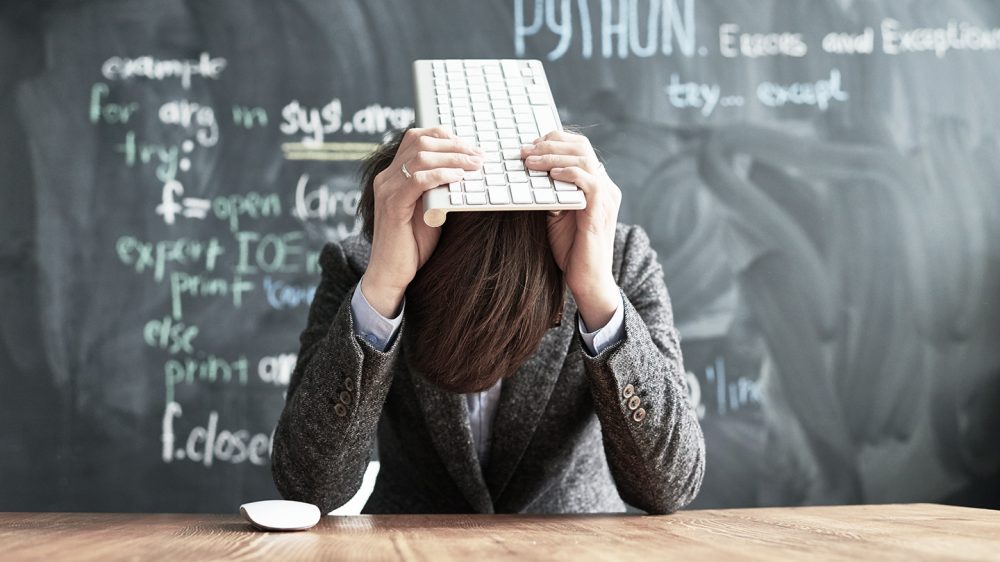
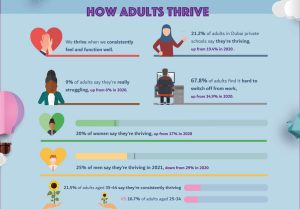

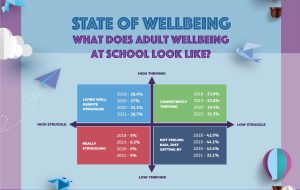
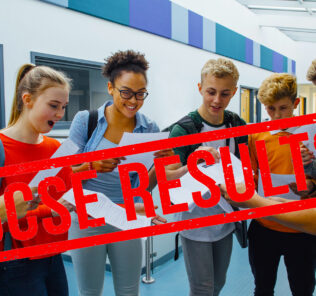
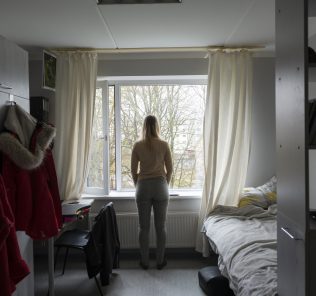

















Leave a Response